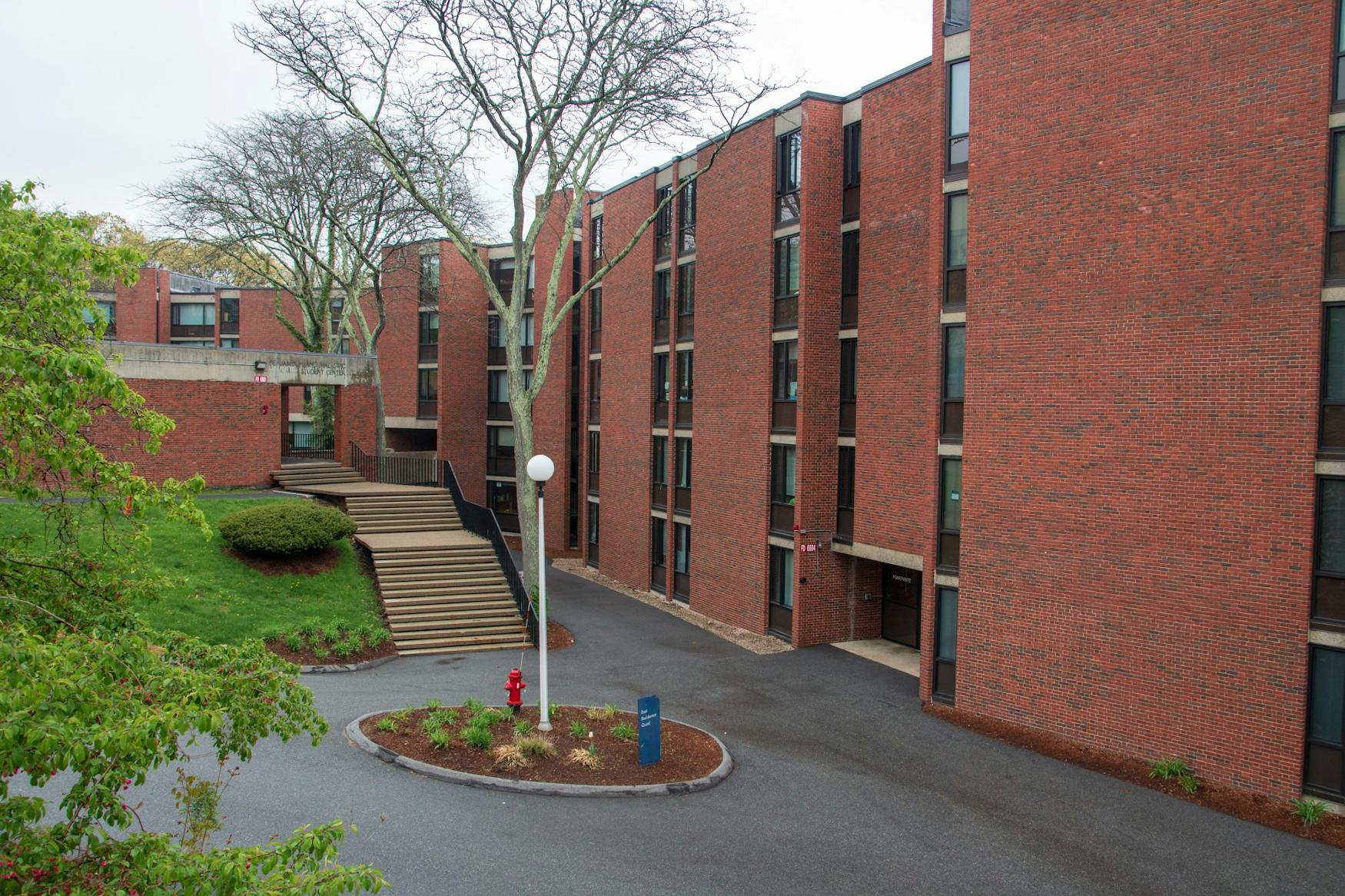Why the lack of accessibility on Brandeis’s campus is detrimental
Born with a rather aggressive form of developmental dislocation of the hip, my life has always been filled with surgeries and “mild” inconveniences. Surgeons were able to patch me up with six surgeries, and I can walk almost like everyone else for short distances, except for one problem: stairs.
Growing up, my schools have always been very accommodating, plus all I really needed was an elevator pass. However, when I arrived at the University, things became a little more challenging. Before school started, I researched my accommodations options on campus just like I always did. I got all my medical letters translated, filled all the forms as the Student Accessibility Services website indicated, and submitted my housing accommodations request three months before school started. To my suprise, I found out that I was assigned to the second floor of a building without an elevator. I initially thought that “this must be the best they could do,” and I went with it.
As a handicapped person who also happens to be an international student without family members to help me with moving, it was a pretty difficult process with a lot of physical pain on my hip. Again, nothing undoable; I knew there were people who had it worse than me, so I didn’t complain about it. Two months after the initial move-in, I found an email in my mailbox from housing stating that they just saw my housing accommodation and asking me if I would like to be switched to the ground floor. I was sitting in my room, surrounded by all the pieces of furniture I had spent hours moving up the stairs and into the room while reading that email. I thought about it and decided to not go through the hassle again.
My several encounters with SAS didn’t make my decision to move off campus to a building with elevators that difficult, and having a car was essential since my apartment was not within walking distance to a BranVan station, so I began looking into the parking accommodations at Brandeis. The website of Disability Accomodations in Campus Housing wrote: “Regardless of accommodations, all students must obtain a parking permit from the Parking Office. This includes students with DOT disability placards.” This statement really threw me off, as I never had to pay for having a disability in the past. I thought this must have been some sort of a mistake, but my several visits to the Parking Office confirmed that I was not mistaken — I do have to pay for a parking permit, even with a state-issued handicap placard. As it turned out, I did not have to pay to get my doctor’s letter of diagnosis, did not have to pay for a handicap placard from the state of Massachusetts, did not have to pay for parking meters in the entire state, but had to pay for parking at my own school.
I remember researching Brandeis and reading the webpage of the Diversity, Equity & Inclusion Office when I was a senior in high school: “We are committed to working collaboratively with our campus community to build high-quality programming that brings about positive and equitable social change.” Diversity and inclusion are big things for me when it comes to deciding where I work and study, so I have always taken pride in being a student of an institution that embraces them. But is this still an equitable campus if people have to pay to live an equitable life here?
Their rationale for this is that it was my choice to have a vehicle on campus, and they do have an accessible transport van, the BranVan, on campus that I chose not to use. Don’t get me wrong, I think having the van is great, but the problem is that you have to pre-plan your pickup and drop off locations a week or two ahead of time. That does not allow any room for flexibility, and the communication is via email, which never hides the names of the recipients, so I can see a list of every single person who is handicapped on campus. I don’t really mind that, as I am very open about my physical condition, but I always wondered if everyone else on the recipient list would feel the same way that I do. Of the several people I know who receive the van service, none have ever used it because the amount of planning and communication that went into getting one ride from North Quad to the Usdan Student Center was simply not worth it. I am someone who is extremely lucky to have support to pay for my tuition, off-campus housing, and parking on campus. My physical condition also allows me to live only mildly inconveniently, even without the accommodations I need sometimes. However, I know I have peers on the very same campus needing those same accommodations much more than I do, and they deserve the equity without having to pay for it.



Please note All comments are eligible for publication in The Justice.